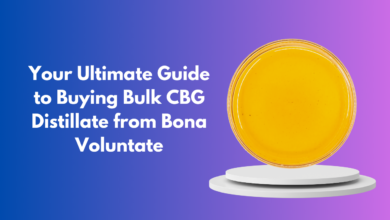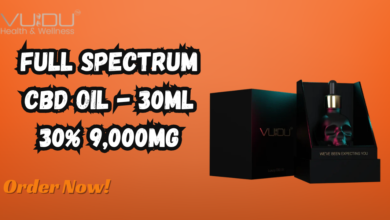The Advantage of Understanding: Can You Reverse Venous Insufficiency?
Venous insufficiency is a common condition where veins have difficulty sending blood from the limbs back to the heart. This can lead to varicose veins, swelling, and even ulcers. Understanding the condition is crucial, as it empowers individuals to take control of their health. But a pertinent question arises: Can you reverse venous insufficiency? Let’s explore this in depth.
What is Venous Insufficiency?
Venous insufficiency occurs when the valves in the veins of the legs are not working effectively. These valves are supposed to prevent blood from flowing backward. When they fail, blood pools in the veins, leading to the symptoms associated with the condition. Causes can range from genetic factors, aging, prolonged sitting or standing, to obesity and pregnancy. Recognizing these causes helps in understanding how the condition develops and progresses.
Symptoms and Diagnosis
Symptoms
- Swelling: Often in the ankles and lower legs, swelling is a common sign of venous insufficiency.
- Pain and Cramping: Aching or throbbing pain in the legs, often worse after standing or sitting for long periods.
- Skin Changes: Skin around the affected veins can become dry, itchy, and discolored.
- Varicose Veins: Enlarged veins that are visible just under the surface of the skin.
- Ulcers: Severe cases can lead to ulcers around the ankles.
Diagnosis
Diagnosing venous insufficiency typically involves a physical exam and a review of symptoms. Doctors may also use duplex ultrasound, which allows them to see the structure of the veins and check the blood flow. This imaging technique is non-invasive and highly effective in providing detailed information about the condition.
Traditional Treatments for Venous Insufficiency
Compression Stockings
One of the first lines of defense against venous insufficiency is the use of compression stockings. These garments apply pressure to the legs, helping veins move blood more efficiently. While they don’t reverse the condition, they can alleviate symptoms and prevent it from worsening.
Medications
Several medications can help manage the symptoms of venous insufficiency. Diuretics, for instance, reduce swelling by helping the body eliminate excess fluid. Additionally, medications that improve vein function and blood flow can also be prescribed.
Sclerotherapy
This procedure involves injecting a solution directly into the vein, causing it to collapse and scar over. Blood is then rerouted through healthier veins. Sclerotherapy is effective for treating smaller varicose veins and spider veins.
Surgical Options
For more severe cases, surgery might be necessary. Procedures such as vein stripping, ligation, or even laser surgery can remove or close off problematic veins. While these methods can be effective, they come with the usual risks associated with surgery and a longer recovery time.
Can You Reverse Venous Insufficiency?
The burning question remains: Can you reverse venous insufficiency? The answer is nuanced. While complete reversal of the condition might not always be possible, significant improvements and management are achievable through lifestyle changes, medical interventions, and natural remedies.
Lifestyle Changes for Better Vein Health
Exercise
Regular physical activity is one of the best ways to improve vein health. Exercise helps maintain a healthy weight, reduces pressure on the veins, and enhances circulation. Activities like walking, swimming, and cycling are particularly beneficial.
Diet
A diet rich in fiber, vitamins, and minerals supports overall health and can alleviate some of the symptoms of venous insufficiency. Foods high in antioxidants, such as berries, citrus fruits, and leafy greens, promote healthy veins. Reducing salt intake can also prevent swelling and water retention.
Weight Management
Maintaining a healthy weight is crucial in managing venous insufficiency. Excess weight puts additional pressure on the veins, exacerbating the condition. A balanced diet and regular exercise are key to achieving and maintaining an optimal weight.
Elevation and Movement
Elevating the legs above heart level several times a day can help reduce swelling and improve blood flow. Avoiding long periods of sitting or standing, and taking breaks to move around, are also important strategies.
Medical Interventions to Improve Venous Function
Endovenous Laser Therapy (EVLT)
EVLT is a minimally invasive procedure that uses laser energy to close off affected veins. This technique is highly effective in treating larger varicose veins and has a relatively short recovery period.
Radiofrequency Ablation
Similar to EVLT, this procedure uses radiofrequency energy to heat and close off problematic veins. It’s another minimally invasive option that offers significant improvement in symptoms with a quick recovery time.
Natural Remedies to Support Vein Health
Herbal Supplements
Several herbal supplements can support vein health. Horse chestnut extract, for instance, has been shown to reduce symptoms of venous insufficiency, including swelling and discomfort. Gotu kola and butcher’s broom are other herbs known for their beneficial effects on circulation and vein integrity.
Essential Oils
Certain essential oils, like lavender and peppermint, have anti-inflammatory properties and can improve blood flow. Diluting these oils and massaging them into the legs can provide relief from pain and swelling.
The Role of Professional Help
Vascular Specialists
Consulting a vascular specialist is crucial for anyone experiencing symptoms of venous insufficiency. These professionals can provide a comprehensive treatment plan tailored to the individual’s needs.
Physical Therapists
Physical therapists can design exercise programs that specifically target improving vein health and overall circulation. These tailored exercises can make a significant difference in managing and potentially reversing some symptoms of venous insufficiency.
Preventive Measures to Avoid Progression
Regular Check-Ups
Regular medical check-ups are essential in monitoring vein health and catching any issues early on. Early intervention can prevent the progression of venous insufficiency and lead to better outcomes.
Healthy Habits
Adopting healthy habits, such as staying hydrated, avoiding excessive heat (which can dilate veins), and wearing comfortable clothing and shoes, can all contribute to better vein health.
Psychological and Emotional Support
Living with a chronic condition like venous insufficiency can take a toll on mental health. Seeking support from friends, family, or support groups can provide emotional relief. Additionally, counseling or therapy can help in managing the psychological impact of the condition.
Innovations and Future Directions in Treatment
Stem Cell Therapy
Emerging treatments like stem cell therapy show promise in repairing damaged veins and improving overall vascular health. While still in the experimental stages, these therapies could offer new hope for reversing venous insufficiency.
Genetic Research
Advancements in genetic research may lead to better understanding and treatment of venous insufficiency. Identifying specific genetic markers could pave the way for personalized treatments that target the root cause of the condition.
Conclusion: A Path Forward
So, can you reverse venous insufficiency? While it may not be entirely reversible for everyone, significant improvements are possible through a combination of lifestyle changes, medical treatments, and natural remedies. Understanding the condition, seeking professional help, and taking proactive steps towards better vein health can greatly enhance quality of life and manage the symptoms effectively. By staying informed and proactive, you can take control of your vein health and potentially reverse some of the damage caused by venous insufficiency.



